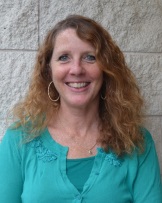
Marketing Director
The website’s tagline caught my eye as it scrolled through my newsfeed.
“Read less. Know more.”
Its oxymoronic arrogance stunned me, particularly given the site’s intent to provide news.
Possibly, you can read less, know more about what your three-year old wants for dinner. You can read less, know more about how a sunset looks on a late summer evening. You can read less, know more about how petunias smell, or rivers sound when they splash over rocks, or how your best friend likes her coffee.
But you can’t read less, know more about the news, especially if the gatekeepers of your information are defining both the “news” and the “knowledge.”
Consider yesterday’s financial headlines on Newser.com:
“Marissa Meyer pregnant with twins.”
“McDonalds makes McMuffin changes.”
“How legalized weed is affecting booze sales.”
And then consider this headline, which did not even appear on the Newser home page: “Dow sinks 300-Plus at open.”
We’re living on an exciting, digital frontier in which information flies at us with impressive speed, literally available at our fingertips. Our ability to parse that information remains both our challenge and our responsibility. But it also offers privilege and equality. Everyone with access to the Internet can help themselves to a dizzying array of information.
It just requires a few more clicks. I’m all for the forced brevity of Twitter and I’ve seen clever news stories contained in 140 characters.
Mostly, though, those tweets include links, and those links lead to more stories and, eventually, by sifting through it all, you arrive at the day’s truth.
Websites and social media can tell us the headlines, but they can’t tell us the news. For that we need to dig a little deeper.
Truly, to know more, you have to read more. Fortunately, there are plenty of dependable news sources out there.
Know more. Read more. And, don’t rely on Newser.com.